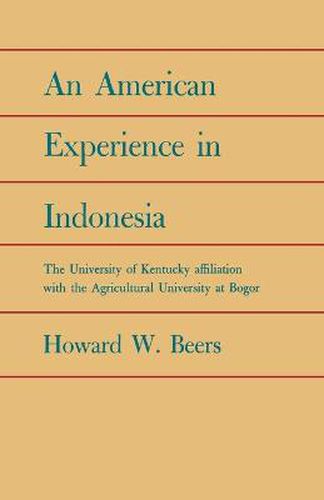Readings Newsletter
Become a Readings Member to make your shopping experience even easier.
Sign in or sign up for free!
You’re not far away from qualifying for FREE standard shipping within Australia
You’ve qualified for FREE standard shipping within Australia
The cart is loading…






This book tells the story of an important experiment in international cooperation and inter-university collaboration in educational development. A team of educational and agricultural specialists from the University of Kentucky (called Kenteam in the book) lived and worked in Bogor, Indonesia, from 1957 through 1965. Their purpose – to work with the Agricultural University in Bogor to develop a complete college of agriculture to the level of capability for self-regeneration and growth. Working against a background of political and economic turmoil, Kenteam succeeded in helping the Indonesians build an institution capable of achieving its goals once the restraints of a struggling economy could be removed. This heartening story is replete with sociological insight but free of sociological jargon. Written in a reportorial and evaluative style, the book interweaves ideas of organizational development with close- ups of the interagency and human problems involved, telling an absorbing story of international cooperation in technical assistance. It will be read with interest by Asian specialists and the many people concerned with social change and economic and educational development.
$9.00 standard shipping within Australia
FREE standard shipping within Australia for orders over $100.00
Express & International shipping calculated at checkout
This book tells the story of an important experiment in international cooperation and inter-university collaboration in educational development. A team of educational and agricultural specialists from the University of Kentucky (called Kenteam in the book) lived and worked in Bogor, Indonesia, from 1957 through 1965. Their purpose – to work with the Agricultural University in Bogor to develop a complete college of agriculture to the level of capability for self-regeneration and growth. Working against a background of political and economic turmoil, Kenteam succeeded in helping the Indonesians build an institution capable of achieving its goals once the restraints of a struggling economy could be removed. This heartening story is replete with sociological insight but free of sociological jargon. Written in a reportorial and evaluative style, the book interweaves ideas of organizational development with close- ups of the interagency and human problems involved, telling an absorbing story of international cooperation in technical assistance. It will be read with interest by Asian specialists and the many people concerned with social change and economic and educational development.